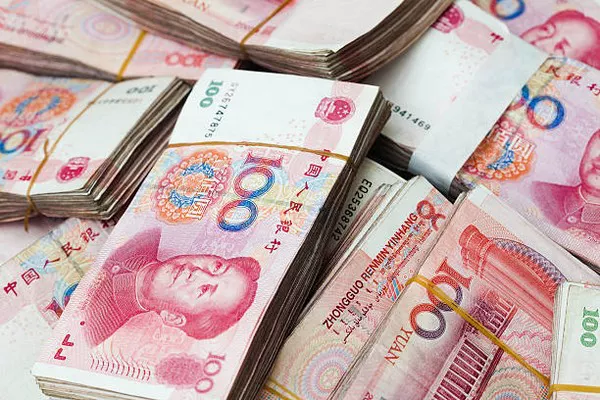In the ever-evolving landscape of international finance, the dominance of the U.S. dollar as the world’s primary reserve currency has been unchallenged for decades. However, recent economic shifts and geopolitical developments have led to growing speculation about the possibility of the Chinese yuan, also known as the renminbi (RMB), challenging the dollar’s supremacy. This article explores the factors contributing to the yuan’s rise and analyzes whether yuan has the potential to replace the dollar as the global reserve currency.
Economic Reforms in China:
China’s economic transformation over the past few decades has been nothing short of remarkable. The country has transitioned from a predominantly agrarian society to the world’s second-largest economy, driven by rapid industrialization, urbanization, and a strategic focus on export-led growth. As China continues to open its markets and implement economic reforms, the yuan has gained increased international acceptance and recognition.
The inclusion of the yuan in the International Monetary Fund’s (IMF) Special Drawing Rights (SDR) basket in 2016 marked a significant milestone for the currency. This move signaled international recognition of the yuan as a global reserve currency and paved the way for its increased use in international trade and finance.
Belt and Road Initiative:
China’s ambitious Belt and Road Initiative (BRI) has further propelled the internationalization of the yuan. The BRI aims to connect countries across Asia, Europe, and Africa through infrastructure development projects. As China invests heavily in these projects, it promotes the use of the yuan for cross-border trade and financing. This not only facilitates economic ties with partner countries but also encourages the adoption of the yuan in international transactions.
Trade Surpluses and Foreign Reserves:
China’s persistent trade surpluses and substantial foreign exchange reserves have bolstered the yuan’s standing in the global financial system. By accumulating significant reserves, China has enhanced the credibility of the yuan and positioned it as a stable and reliable currency. As more countries diversify their foreign exchange reserves away from the U.S. dollar, the yuan becomes an attractive alternative.
Currency Liberalization and Financial Market Reforms:
China’s commitment to liberalizing its currency and financial markets has been a key driver of the yuan’s internationalization. The People’s Bank of China (PBOC) has gradually relaxed restrictions on the yuan’s convertibility, allowing it to be used more freely in international trade and investment. Financial market reforms, including the establishment of the Shanghai International Financial Center, have created a conducive environment for the yuan to emerge as a global currency.
Challenges and Obstacles:
While the yuan’s ascent is undeniable, several challenges and obstacles must be addressed before it can replace the U.S. dollar as the global reserve currency.
Capital Controls and Exchange Rate Stability:
China’s capital controls, albeit gradually easing, remain a significant hurdle. A fully convertible currency requires a free flow of capital, and China’s cautious approach to capital account liberalization could impede the yuan’s global adoption. Additionally, concerns about exchange rate stability persist, as investors may be hesitant to embrace a currency with a history of managed depreciation.
Financial Transparency and Rule of Law:
For the yuan to gain widespread trust, China must enhance financial transparency and strengthen the rule of law. Investors and central banks demand clarity and predictability in financial markets, and any perceived lack of transparency or legal uncertainties could hinder the yuan’s acceptance as a reliable global reserve currency.
Lack of Deep and Liquid Financial Markets:
While China has made significant strides in developing its financial markets, they still lag behind those of more established global financial centers. The yuan’s potential as a global reserve currency depends on the depth and liquidity of its financial markets, which are crucial for international investors seeking a safe and efficient environment for transactions.
See Also Is 10000 Yuan A Lot Of Money In China? A Comprehensive Analysis
Conclusion:
The rise of the yuan as a contender to replace the U.S. dollar as the global reserve currency is a complex and multifaceted process. China’s economic reforms, international initiatives, and the gradual opening of its financial markets have undoubtedly elevated the yuan’s status on the world stage. However, challenges such as capital controls, exchange rate stability, and the need for greater financial transparency must be addressed for the yuan to fully realize its potential.
While the shift away from the dollar as the dominant global reserve currency may not happen overnight, the yuan’s trajectory suggests that it will play an increasingly prominent role in the international monetary system. As China continues to assert its economic influence and implement reforms, the global financial landscape may witness a gradual rebalancing of power, with the yuan emerging as a credible alternative to the U.S. dollar. The future dynamics of the global reserve currency system will depend on how effectively China navigates these challenges and builds confidence in the yuan’s role in the international financial arena.


